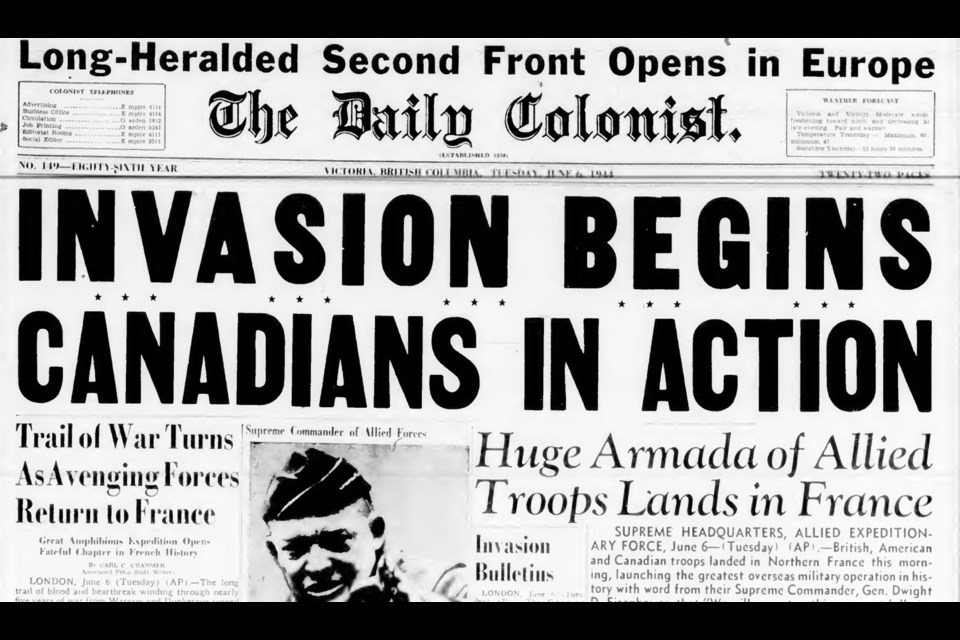After spending 12 years getting the first 122 years of this newspaper digitized and online, the University of Victoria Libraries threw a party on June 4 to celebrate completion of the project.
The BritishColonist.ca website includes news about every B.C. premier and Canadian prime minister to hold office up to August 1980, along with stories on six British monarchs, 24 U.S. presidents, two world wars, the 1912 sinking of the Titanic and the 1969 moon landing.
The project was initiated in early 2007 by the Times Colonist and the university, with UVic handling most the work, including digitization and grant applications as well as agreeing to host the pages on a dedicated site.
BritishColonist.ca is free. It includes the entire publishing history of the newspaper that was started as the British Colonist on Dec. 11, 1858.
It was known as the Daily Colonist in 1980, when it merged with the Victoria Times to become the Times Colonist.
UVic’s digital librarians completed their work on the website about one month ago.
Lisa Goddard, associate university librarian, digital scholarship, said Tuesday’s ceremony “was basically just a celebration of the end of this 12-year project to let the community and researchers know it’s all there and ready to use.”
The archive website had five decades of the Colonist, from 1858 to 1910, when it went online in late 2008.
The 19th century issues had fewer pages than later ones, so the scanning project went quickly at first.
Later, UVic added issues to the site a decade at a time.
Goddard said the work represents a commitment by UVic libraries and its partners to present an open research resource available to all.
She said the digital archive of the Daily Colonist will be invaluable to historians interested in B.C. and Canada during the latter half of the 19th century and most of the 20th.
Genealogists, students or people just curious about the development of their own Victoria neighbourhood will also find items of interest.
She said what sets the online version of the Colonist apart from microfilmed newspaper archives is the ability to conduct computer searches of its pages. These searches can be based on names, phrases, places, streets, whatever appears in the columns of newspaper type.
“One of the really nice things for anyone who has had to read through lots of microfilm is we have keyword-search capability,” she said.
Those searches can be narrowed by date or left open to find every reference of a word or phrase that appeared through the years.
Goddard cautioned that computer recognition of letters and characters is not perfect and can be thrown off by something such as a smudge or a change in the typestyle.
“But it has enough accuracy that it’s a pretty good place to start,” she said.
The online Colonist is one of the most popular publicly available collections offered by UVic libraries, Goddard said.
“This is an enormously important public service,” she said. “There’s just so much absolutely brilliant information in it.”
Dave Obee, editor and publisher of the Times Colonist, called the online archive “a great equalizer” and a “game changer.”
With it, anyone with online access, regardless of their location, can conduct historical research based on an original source.
“For decades, access to our back issues was limited to people close to libraries with microfilm copies of the old Daily Colonist,” Obee said.
“People in the cities had to time their visits to fit the open hours of the libraries.
“Now, our back issues are available to all, for free, no matter where they are.”
The project’s original contributing partners included the Times Colonist, UVic Libraries, the Irving K. Barber Learning Centre, the Greater Victoria Public Library, the B.C. Electronic Library Network, the Public Library Services Branch and the Legislative Library of British Columbia.



